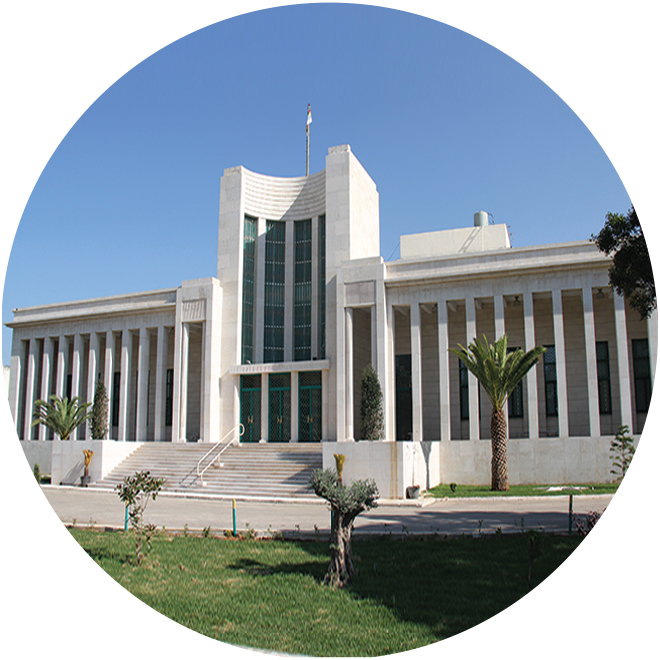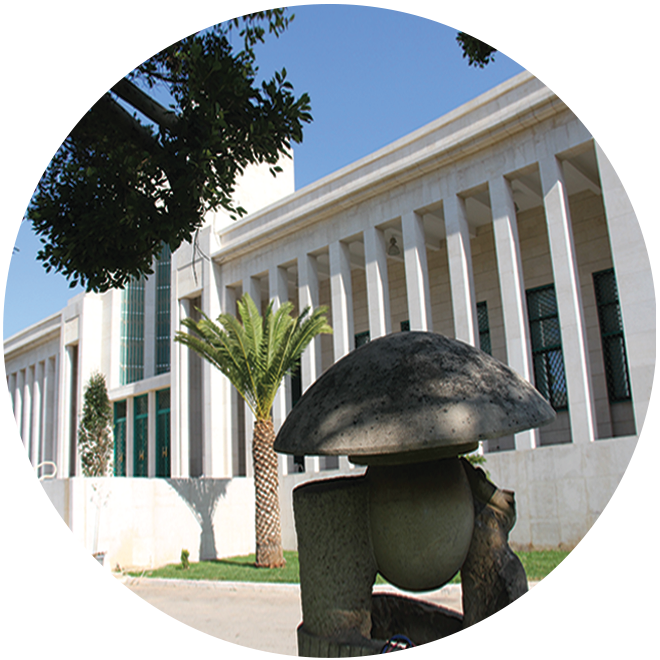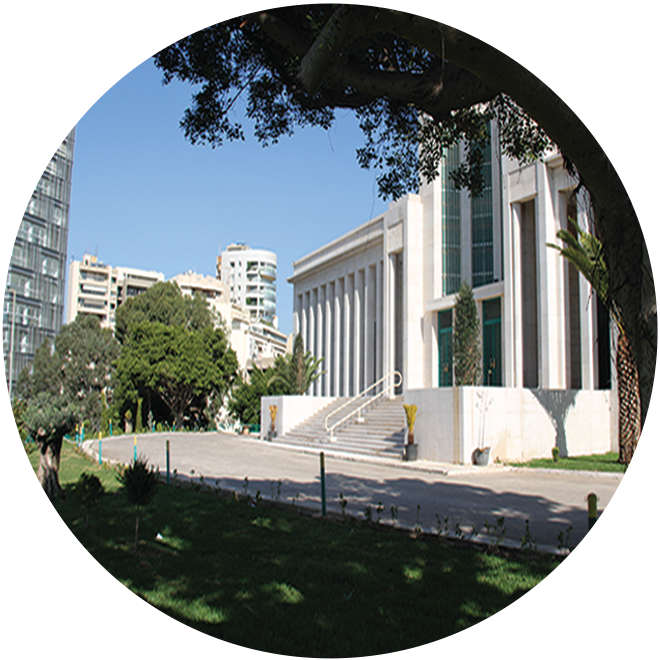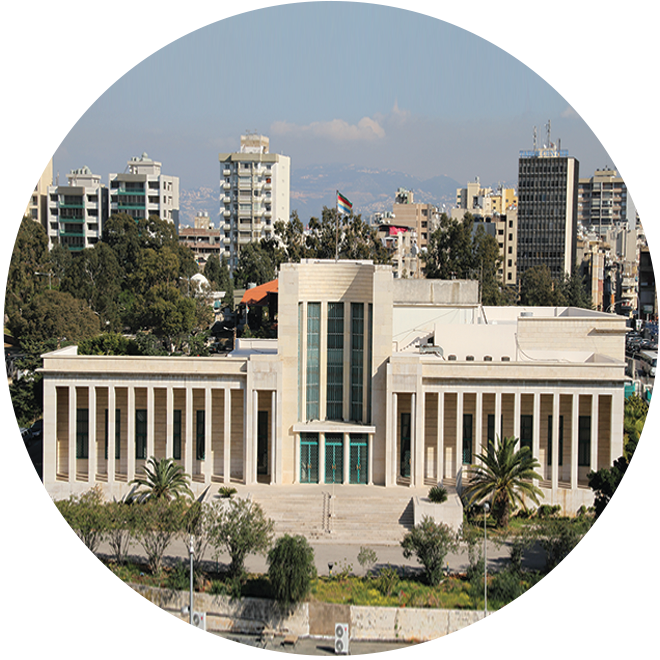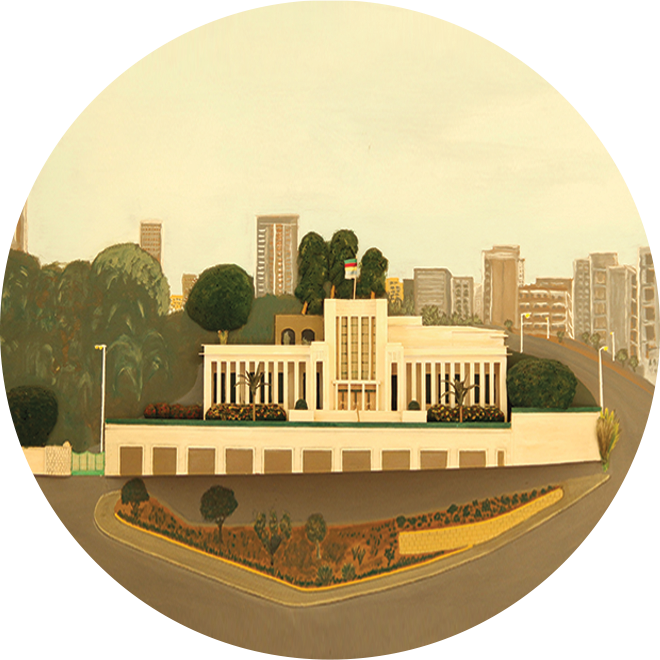Fundamentals of the Bidden and Forbidden of the Mouwahidoune Druze Sect
The issue of the bidden and the forbidden is the principal constituent of Islam, an evidence of faith, a measure of honesty of the pious Mouwahidoune Druze; therefore, no faith without action and no action without commitment to what is bidden and forbidden.
The bidden and forbidden are set by God in sympathy of mankind for reasonable causes. He only bids all that is good and forbids all that is evil for He only wishes his mankind bountifulness, goodness, guidance and mercifulness. One of the scholars said, “God forbade interest to compensate it with profitable trade, forbade silk to compensate it with elegant clothes, forbade adultery to compensate it with legal marriage, forbade drinking alcoholic beverages to compensate it with delicious drinks, forbade harmful foods to compensate it with good pure ones, the Almighty said,
“He allows Them as lawful what is good (And pure) and prohibits them From what is bad (and impure).” (The Heights sura – verse 157)
The Mouwahidoune Druze sect adopts the Qur’an regarding the bidden and forbidden since this Holy Book settles the issue of right and wrong; the Mouwahidoune Druze believe that monotheistic worship is only fulfilled when it meets the requirements of both conditions: the bidden and the golden mean (moderation).
The Personal Status Law of the Mouwahidoune Druze Sect covers many issues as engagement, marriage, divorce, limitation of someone’s legal competence, custody, bequest, heritage, etc… The legislations of marriage are based on what has been mentioned in the verses and Hadith of the Holy Qur’an and which prompt marriage and its norms, yet with the marriage of one wife based on his saying, “But if ye fear that ye shall not Be able to deal justly (with them). then only one,” (The Women sura – verse 3) until he says, “ye are never able To be fair and just As between women, even if it is your ardent desire:..” (The Women sura – verse 129) Besides, the divorced woman can not be restored in interpretation of achieving the absolute irrevocable marriage after considering the entire successive steps in dealing with the marital disagreement in conformity with the detailed verses mentioned in The Women sura,”Men are the protectors And maintainers of women, Because God has given The one more (strength) Than the other, and because They support them From their means Therefore the righteous women Are devoutly obedient, and guard in (the husband’s) absence What God would have them guard. As to those women On whose part ye fear Disloyalty and ill-conduct, Admonish them (first), (Next), refuse to share their beds, (And last) beat them (lightly); But if they return to obedience, Seek not against them Means (of annoyance): For God is Most High, Great (above you all).” (The Women sura – verse 34).
“If ye fear a breach Between them twain, Appoint (two) arbiters, One from his family, And the other from hers; If they wish for peace, God will cause Their reconciliation: For God hath full knowledge, And is acquainted with Äll things.” (The Women sura – verse 35).
The Mouwahidoune Druze Sect adopted what has been mentioned in the verses of the Holy Qur’an regarding the prohibited of women, “Prohibited to you (for marriage) are: - Your mothers, daughters, Sisters, father’s sisters, Mother’s sisters; brother’s daughters, Sister’s daughters; foster-mothers (who gave you suck), foster-sisters; Your wives’ mothers; Your step-daughters under your Guardianship, born of your wives To whom ye have gone in, - No prohibition if ye have not gone in; - (Those who have been) Wives of your sons preceding From your loins; and two sisters in wedlock At one and the same time, except for what is past; For God is Oft-forgiving, Most Merciful.” (The Women sura – verse 23).
So is prohibited the married woman as long as she is still married, the woman who did not pass the “iddat” * period following her divorce from or death of her husband, and the husband’s wife for her husband’s son for the Almighty says, “And marry not women Whom your fathers married, - Except what is past: It was shameful and odious, - An abominable custom indeed.” (The Women sura – verse 22).
As to children, their lineage is attributed to their father and the child is attributed to his legally married parents. Moreover, the issue of adoption is rejected by the Mouwahidoune Druze Sect because of the familial problems that might take place.
Regarding Foods and Drinks:
With respect to foods and drinks, the Mouwahidoune Druze are so strict about the necessity to exert efforts in obtaining food and earning bidden means of living, for the Almighty said,
“enjoy (All) things good and pure, and work righteousness: …” (The Believers sura – verse 51). The Almighty also said,
“O ye who believe! Eat of the good things That We have provided for you, and be grateful to god, If it is Him ye worship.” (The Cow sura – verse 172).
The Mouwahidoune Druze also forbid the following matters pursuant to his saying,
“He hath only forbidden you Dead meat, and blood, And the flesh of swine, And that on which Any other name hath been invoked Besides that of God.” (The Cow sura – verse 173)
“O ye who believe! Intoxicants and gambling, (Dedication of) stones, And (divination by) arrows, are an abomination , - Of Satan’s handiwork: Eschew such (abomination), That ye may prosper.” (The Table Spread sura – verse 90).
The Islam also prohibited the eating of all birds with claws, every beast of prey with a tusk because of its stiff muscles and colored meat and stingy smell; the Prophet (pbuh) said, “It is prohibited for you to eat any bird with a claw and any beast of prey with a tusk.”
The Mouwahidoune Druze should pronounce the name of God (Allah) at the beginning of every meal, at butchering (slaying) the cattle and livestock for he says,
*Iddat (also pronounced IDDAH a "prescribed period" of three monthly courses (Surah 2.228), before the divorce becomes final. The husband, after declaring to his wife on three occasions that he intends to divorce her (anti taliq - "you are dismissed"), must wait three months thereafter before he can finally separate from her, and the wife likewise must remain in the home during this period to see whether she is pregnant and to see whether a reconciliation can be made.
“Why should ye not eat of (meats) on which God’s name hath been Pronounced,” (Cattle sura – verse 119). Pronouncing the Almighty name at the beginning of a meal is reminding oneself of and thankfulness to God’s innumerable graces, and so at butchering, since the carcass is only bidden in the name of God only, for the Exalted said, “So eat of (meats) On which God’s name Hath been pronounced, If ye have faith In His Signs” (Cattle sura – verse 118). Ali Bin Abi Taleb said that butchering is good only by a piece of iron.
We must also consider two other main issues: drugs and smoking:
In fact, the Islam calls for the maintenance and preservation of five issues: the soul, the intellect, honor, religion and money; they fundamentally constitute life, bring in happiness to mankind, build up this world and keep its existence and good health as long as this does not provoke any heresy. These five altogether are the center and axis upon which religions were based in their history, cycles, and successive missions.
Drugs:
Drugs are prohibited because of their health, mental, ethical, economical, and social harmful effects; the prophet (pbuh) said, “no harm no wrong" , thus, drugs, as well as all that is derived from them, are prohibited pursuant to the rule of warding off evil and preventing means of corruption.
Smoking:
Smoking is discussed from two points of view and its danger is revealed in two respects: the way it deteriorates and sickens the body, and the way it takes away and wastes money.
It is scientifically and medically proved that smoking has harmful effects on the soul and money which God has consigned to man, therefore, looking after both (the soul and money) is of great responsibility to be asked about when meeting God.
The same is applied to “Nargili” which is considered as a kind of smoking.
Socially:
With respect to social issues, both the history and traditions of this honorable sect stand as the best witness for the traditions, customs, decent legacy and noble humane values deeply rooted in the members of the Mouwahidoune Druze Sect, though we could see nowadays some who are trying to throw themselves amidst of fake civilization.
The legislations within this sect emphasized on the necessity rather than the importance of ideal relations, and avoiding all that is far from humane values and morals as killing, committing suicide, robbery, false testimony, malicious gossip, tale-bearing, infidelity, bribery, deceit, hypocrisy and wailing for the dead where all are considered as forbidden acts for the Mouwahidoune Druze in execution of the Islamic Law.
In regard of Bequest and Inheritance:
In his Holy Qur’an, the Exalted and Glorified says, “It is prescribed, When death approaches Any of you, if he leave Any goods, that he make a bequest To parents and next of kin, According to reasonable usage; This is due From the God-fearing.” (The Cow sura – verse 180).
Based on this verse, the Mouwahidoune Druze believe that a bequest is obligatory to every one of them.
However, if a bequest is not available, the inheritance is to be divided in accordance with the Hanafi Doctrine; article 171 of the Law of Regulating the Affairs of the Mouwahidoune Druze issued on February 24, 1948 stipulates that: With respect to all the issues within the authority of the Confessional Judge and are not stipulated in a special text in this law, the aforementioned judge implements the provisions of the Islamic Law, The Hanafi Doctrine, and all the legal texts that do not oppose the Islamic Law.”
Praying for a Funeral Procession:
In their prayer for a funeral procession, the Mouwahidoune Druze rely on the four exclamations of God as Great which are the basic constituents of prayer and that should take place after washing and preparing the dead body.
Monotheistic Concepts
The Bureau of Mashyakhat Al Aql of the Mouwahidoune Druze Sect









